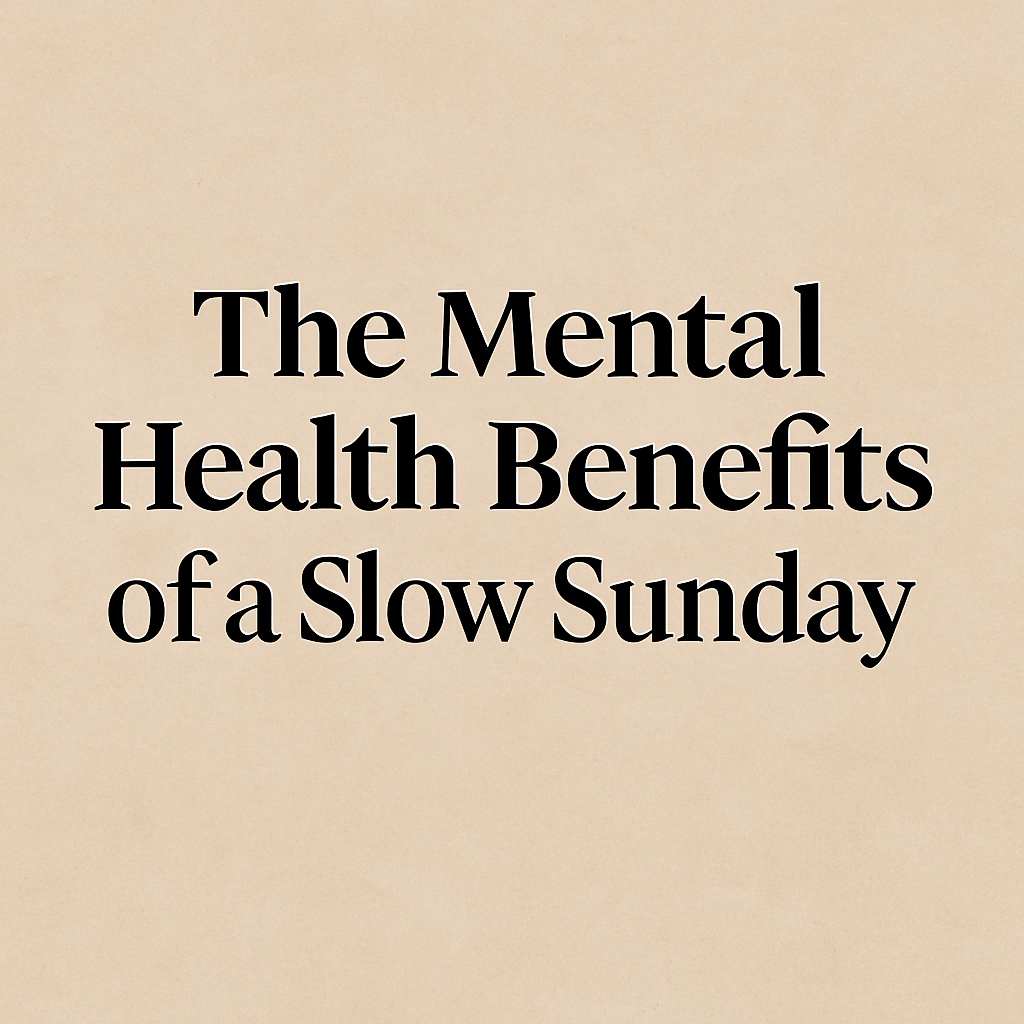The Mental Health Benefits of a Slow Sunday
In a world that glorifies busyness, the idea of taking a slow Sunday can feel almost rebellious. Yet, it’s often in the quiet and unhurried moments that we begin to heal, reflect, and reset. As the weekend winds down and the pressures of the coming week begin to creep in, embracing a slower pace on Sunday can have a profound effect on our mental health.
A slow Sunday allows the mind to catch its breath. After a week filled with responsibilities, commitments, and constant stimulation, taking time to simply be without rushing or multitasking can reduce stress levels significantly. It gives our nervous system a chance to shift from high alert to calm, which can prevent burnout and emotional fatigue. The simplicity of a slow morning, sipping tea or taking a walk without urgency, tells our body that it’s safe to relax.
One of the most important aspects of a slow Sunday is the space it creates for intentional reflection. Without the clutter of tasks or deadlines, we are able to check in with ourselves emotionally. How did the past week truly feel? What made us smile? What drained us? These quiet check-ins are vital for mental clarity and emotional regulation. They help us become more aware of our inner world and less reactive to the chaos outside.
Read alsoBreaking the Chains: A Survivor’s Guide to Hope and Healing
Sleep patterns also benefit from a relaxed Sunday. By winding down mindfully perhaps with a warm bath, journaling, or simply turning off devices early our brains prepare for a deeper, more restorative sleep. In contrast, when Sunday is packed with errands or digital noise, sleep tends to suffer, and we carry that unrest into the new week.
A slow Sunday also enhances our sense of presence. Instead of dreading Monday or rehashing Saturday, we are anchored in the now. Watching the sunlight shift through the curtains, sharing a quiet meal, or reading a few chapters of a favorite book become small but powerful acts of mindfulness. These moments remind us that peace doesn’t always come from changing our surroundings, but from changing our pace.
Ultimately, a slow Sunday is not a luxury it’s a form of mental health maintenance. It’s a gentle invitation to reclaim time, listen inwardly, and reset from the inside out. In its slowness, we find clarity. In its stillness, we regain strength. And in its softness, we meet ourselves again.




